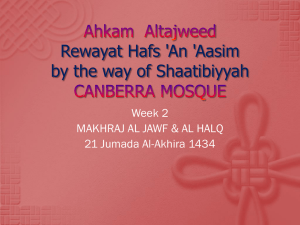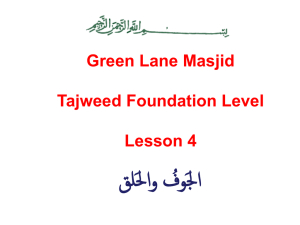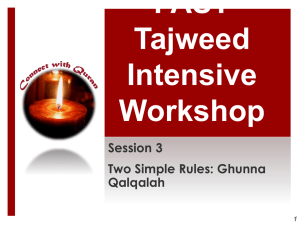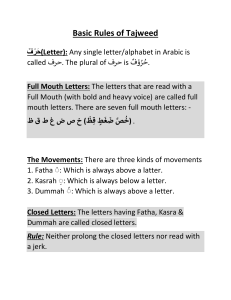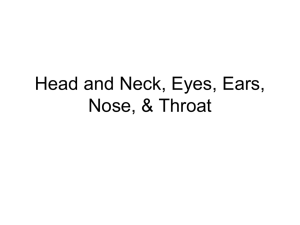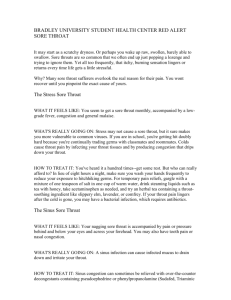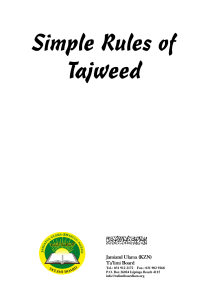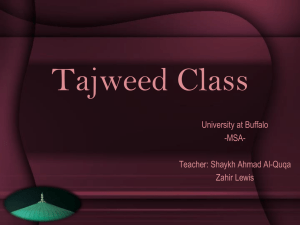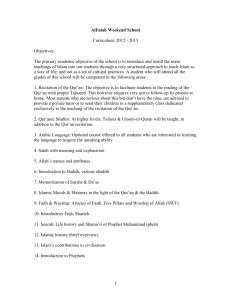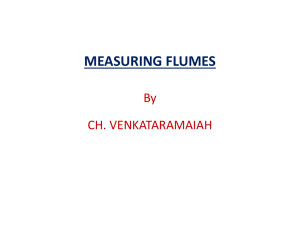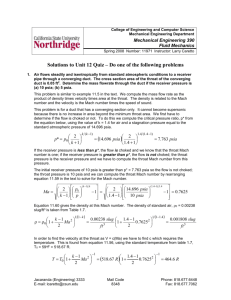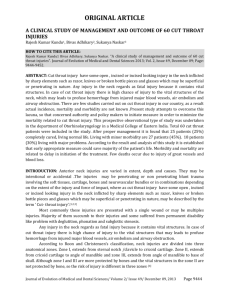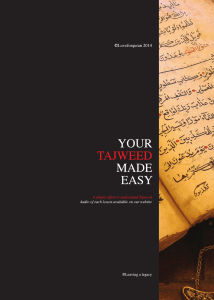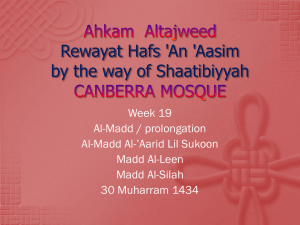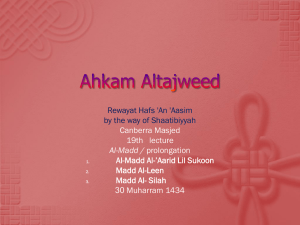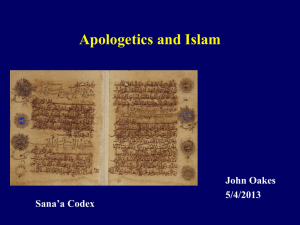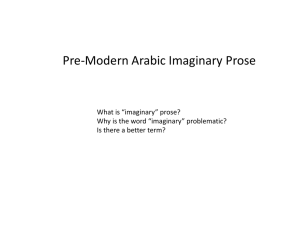Ahkam-Al-Tajweed
advertisement
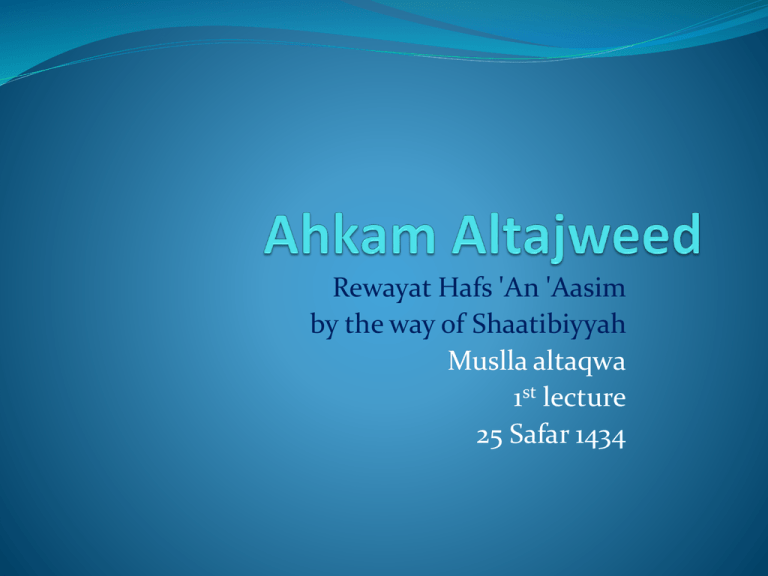
Rewayat Hafs 'An 'Aasim by the way of Shaatibiyyah Muslla altaqwa 1st lecture 25 Safar 1434 Hadith Shareef Ibn Mas`ud (May Allah be pleased with him) reported: The Messenger of Allah () said to me: "Whoever recites a letter from the Book of Allah, he will be credited with a good deed, and a good deed gets a ten-fold reward. I do not say that AlifLam-Mim is one letter, but Alif is a letter, Lam is a letter and Mim is a letter.'' [At-Tirmidhi] What is Tajweed Tajweed linguistically - to improve and make better Tajweed technically - the correct recitation of the Qur'an that is achieved by articulating the letter from its articulation point and giving each letter its rights and due . Rights of the letter are its required characteristics that never leave it. The dues of the letter are its present characteristics that are present in it sometimes and not presented in other time. Makharej & Sifat The most important part of Tajweed is learning about correct positions of the organs of speech and the manner of articulation. The Qur'an can lose its meaning if the letters are not pronounced correctly. For example ( ) حnot to be pronounced as Ha ( ) هـnor kha ( )خ This is so important because it may led to change not only the sound of the word but the meaning as well ( ) الرحيمmerciful ( ) الرخيمsweet sound The definition of the makharij The correct position of the organs of speech in order to produce a letter so that it can be differentiated from others. This is equally so whether the letter is a consonant or a vowel. Being able to recite the letters correctly is the foundation of tajweed, and this is achieved by knowing where the sound originates. This can then help in practising the pronunciation of the letters correctly. The diagram below gives a snapshot of where each letter originates : Makharej & Sifat To achieve the correct makhraj of a letter, practise via placing a sukoon ( ) on it, and precede it with an alif / hamzah with a kasrah ( ) E.g اس اب Makhaarij must be used hand in hand with sifa (characteristics of the letter) in order to pronounce the letter completely and correctly, as the Makhraj provides the origin and the Sifa provides extra information required to pronounce the letter properly. Main Makhaarij There are 5 main categories of Makhaarij : 1. The oral cavity Al Jawf اﻟﺠَﻮف 2. The throat Al Halq اﻟﺤَﻠﻖ 3. The tongue Al Lissaan اﻟﻠِّﺴَﺎن 4. The lips Ash-shafatain اﻟﺸَّﻔَﺘﺎن 5. The nasal cavity Al Khayshoom اﻟﺨَﻴﺸُﻮم The 1st makhraj : Al Jawf This is all the empty space that occurs from the chest, up the throat and out through the mouth. It is the makhraj of the long vowels sounds (also known as the elongated letters) and is elongated for 2 counts: Letter Alif Waw Yaa Description upon which there is a (sukoon)and is preceded by a (fattah) upon which there is a (sukoon)and is preceded by a (dammah) upon which there is a (sukoon)and is preceded by a (kasrah) Extract from Verse (Sura: Verse) (1:6) (1:7) (1:4) summary NB In the Qur'an, the sukoon may not always be shown on the letter, but as a general rule, whenever a letter does not carry a vowel, it means that it has a sukoon, even if it is not actually present. 2nd makhraj : Al Halq In the throat there are 3 makhaarij and each one has 2 letters: 1. The lowest part of the throat: ،(أ ) هـ 2. The mid point of the throat:)ح،(ع 3. The uppermost point of the throat: )خ،(غ nd 2 makhraj : Al Halq nd 2 makhraj : Al Halq The lowest The mid point part of the of the throat throat أ هـ ع ح The uppermos t point of the throat غ خ
